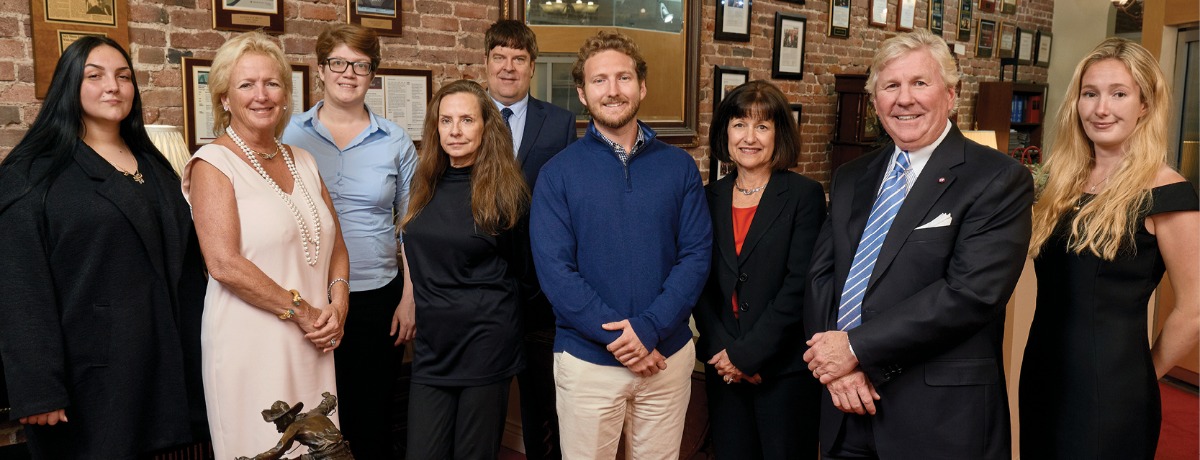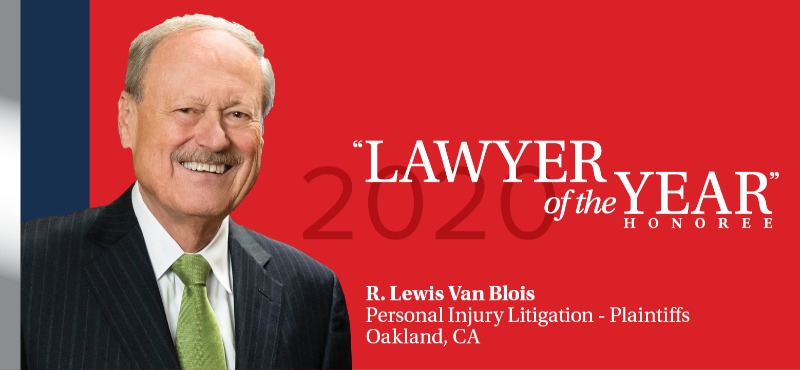IN THE HEADLINES
► Cannata, O’Toole, Fickes & Almazan: Karl Olson (entertainment law – motion pictures and television; entertainment law – music; litigation – First Amendment, 2006) prepared an amicus brief for FAC in the case Stevenson v. City of Sacramento, saying that no records requester should need to put in bond money to prevent public records from being destroyed. The case occurred after Richardson Stevenson and Katy Grimes had to post bond in order to prevent millions of emails from being destroyed.
► Hausfeld: Bonny E. Sweeney (litigation – antitrust, 2018), Michael D. Hausfeld, Reena A. Gambhir, Timothy S. Kearns, Nathaniel C. Giddings, and Sarah R. LaFreniere are working on a case, In re Foreign Exchange Benchmark Rates Antitrust Litigation, 13-cv-7789 (S.D.N.Y.), that just “moved for preliminary approval of settlements with five banks,” reports Whittier Daily News. The estimated settlements, on behalf of foreign exchange investors, total $111,200,000 and include Bank of Tokyo-Mitsubishi, Morgan Stanley, RBC Capital Markets, Société Générale, and Standard Chartered Bank. Upon final approval, the settlement total would amount to over
$2.1 billion.
► Law Offices of Doron Weinberg: Doron Weinberg (criminal defense: general practice; criminal defense: white-collar, 1983) is the attorney for Mark Peterson, a former Contra Costa County district attorney who has been banned from practicing law and may face disbarment. Peterson pleaded no contest to perjury over using campaign funds for personal use. Over $66,000 of his campaign money was spent on personal expenses, such as movie tickets and clothing.
► Swanson & McNamara: Mary McNamara (criminal defense: white-collar, 2008) was attorney for Amer Sinan Alhaggagi, a 22-year-old Oakland man who was accused of supporting ISIS. Alhaggagi was indicted by a federal grand jury in San Francisco on charges that he tried to provide materials to the group from July to November of last year. Allegedly, Alhaggagi had tried to open multiple social media accounts to assist ISIS, reports the East Bay Times. “[Amer] is completely nonviolent, and he took no actions to harm anyone,” McNamara says. “The evidence we have suggests these charges are based on Internet chat conversations that he had with a number of unknown people. Amer is a very young and naïve man, and it appears he allowed himself to be drawn into conversations that he should have been far more suspicious of.”
HONORABLE MENTION
► Steptoe & Johnson has moved its Palo Alto office to San Francisco. They were located in Northern California since January 2014.
► Andrews Lagasse Branch & Bell: Peter J. Ippolito (construction law; litigation – construction, 2006) will become of counsel at the firm’s San Diego office. Ippolito was previously at Dentons and had worked as an assistant general counsel to the United States Army Corps of Engineers.
ITN FEATURE
Lieff Cabraser and Carney Bates & Pulliam Files Class Action Lawsuits against The Walt Disney Company and Viacom
Lieff Cabraser Heimann & Bernstein: Michael W. Sobol (mass tort litigation/class actions – plaintiffs; product liability litigation – plaintiffs, 2013) and his firm alongside Carney Bates & Pulliam have filed a federal class action child privacy protection lawsuit against Viacom and The Walt Disney Company, among others, on the behalf of California parents.
A mother and her child allege that these companies included on the lawsuit violate privacy protection laws since they export children’s personal information from mobile games to advertisers. It further asserts that this is a violation since there is no request for parental consent, which is required by federal and state law.
The Children’s Online Privacy Protection Act (COPPA) was enacted by Congress to protect children online. It allows parents to stop developers and third-party advertisers from mining their children’s identifying information and profiting from it, says KMIR.
Regarding the lawsuit and the COPPA laws that are being violated, Sobol says, “As a company long-engaged in the practice of engaging—and profiting from—children, Disney needs to make sure its games and apps comply with the law. They and the companies they work with always have to obtain verifiable parental consent before extracting kids’ data from their mobile devices when kids play Disney’s mobile apps.”
Further, he says in regards to Viacom’s role in the lawsuit, “With Viacom's focus on children as their audience for entertainment but also profit, Viacom has a fundamental obligation to make sure their games and apps—especially Nickelodeon games and apps—comply with child data and child privacy law. They and the companies they work with must obtain verifiable parental consent before extracting kids’ data from their mobile devices when kids play Nickelodeon games.”
































